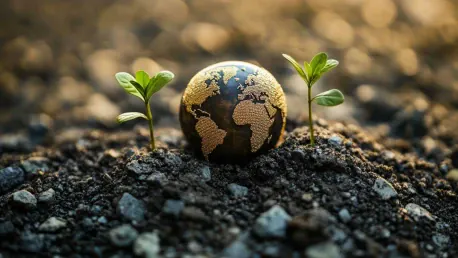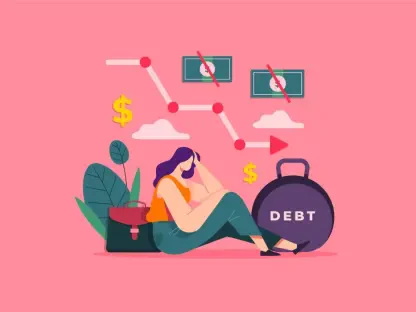As Ghana grapples with severe economic challenges, the World Bank has stepped in with a significant financial commitment: a $1 billion aid package to be disbursed over the next 12 months. This financial lifeline aims to stabilize the economy and bolster private businesses. The timing is pivotal, given Ghana’s upcoming 2024 general elections, where economic performance is expected to play a crucial role. Understanding the gravity of the situation requires examining the multifaceted impacts of this financial support on various aspects of Ghanaian life, from economic indicators to political dynamics.
Ghana is currently experiencing considerable economic distress, manifested in soaring inflation rates, a depreciating currency (the cedi), and rising public debt levels. Global supply chain disruptions, exacerbated by domestic policy failures, have strained the economy further, putting immense pressure on citizens’ purchasing power. More specifically, basic goods have become increasingly expensive, making daily life challenging for many. The government’s attempts to stabilize the economy have so far shown limited success, indicating a pressing need for external assistance, like the recent intervention from the World Bank. This underscores the importance of the $1 billion commitment aimed at restoring economic stability and providing much-needed relief to both citizens and businesses.
The high cost of living has significant social implications, leading to widespread dissatisfaction. Many Ghanaians are vocally calling for immediate interventions to alleviate their burdens. Businesses, particularly in the private sector, have faced operational challenges, leading to reduced productivity and job losses. The current economic environment has resulted in a decline in consumer spending and business investments, further exacerbating the strain on the economy. This recent announcement from the World Bank comes at a crucial juncture, aiming to curb inflation, stabilize the cedi, and reduce the fiscal deficit, thereby addressing key economic woes.
The World Bank’s Strategic Financial Intervention
The World Bank’s announcement of an additional $1 billion in aid comes on top of the $1.6 billion already disbursed over the past year. This new tranche of support aims to help the Ghanaian government address critical economic challenges and implement effective reform measures. According to Robert O’Brien, the World Bank’s Country Director for Ghana, this support is designed to reinforce the government’s agenda of economic reform and stabilization. The hope is to create a more resilient economy that can withstand both external shocks and internal policy shortcomings.
Investing in critical sectors like infrastructure, education, health, and agriculture is a key component of this financial aid package. Infrastructure improvements are expected to enhance connectivity and reduce logistical challenges for businesses, making Ghana more attractive to local and foreign investors. The focus on healthcare and education aims to build human capital, equipping the workforce with necessary skills and ensuring a healthier, more productive population. Equally important, modernizing agricultural practices and improving productivity is expected to drive economic diversification. This approach aims not just to address immediate economic concerns but to lay the foundation for sustainable long-term growth.
Distributing the aid across these various sectors aims to create a conducive environment for private sector growth, thereby fostering economic diversification and reducing unemployment. This multi-sector approach indicates that the World Bank’s strategy is not merely to provide a financial injection but to support structural changes that can lead to a more stable and balanced economy. By enhancing these critical areas, the government aims to create more job opportunities and reduce unemployment rates, particularly among youth. The overarching goal is to foster an environment where private businesses can thrive, contributing to overall economic stability and growth.
Political Implications of the Financial Aid
The timing of the World Bank’s financial support is particularly significant as Ghana approaches its 2024 general elections. Economic stability is expected to be a central issue in the political discourse leading up to the elections. The effectiveness of utilizing the $1 billion aid could significantly influence voter perceptions and, consequently, the electoral prospects of the incumbent government. The ruling party, currently facing criticism for its handling of the economy, now has an opportunity to turn the tide by leveraging this financial support to bring about visible improvements.
Successfully implementing economic reforms and delivering tangible benefits to citizens could bolster the ruling party’s chances of re-election. Conversely, any mismanagement or failure to achieve noticeable economic gains could be detrimental, providing opposition parties with powerful ammunition in their campaigns. The close monitoring by citizens and opposition parties alike will place enormous pressure on the government to deliver results. Effective utilization of this aid package is thus not just an economic necessity but a political imperative as well.
The political landscape is intricately tied to the economic outcomes stemming from this financial support. The ruling party must demonstrate effective management of these funds to enhance its credibility and electoral prospects. However, the proximity of the disbursement to the election timeline means that the government has limited time to transform these resources into conspicuous economic benefits. This period leading up to the elections will be a critical test for the government’s economic management capabilities, with opposition parties likely to focus on any shortcomings as part of their campaign strategies.
Potential Economic Outcomes and Benefits for Citizens
The $1 billion aid package offers a glimmer of hope for many Ghanaians who have been struggling with the high cost of living and reduced purchasing power. If managed effectively, the financial support could lead to several positive economic outcomes. Lower inflation rates, a stronger cedi, and a reduced fiscal deficit are among the primary goals. A stabilized economy could lead to lower prices for goods and services, making everyday essentials more affordable for citizens. Increased investment in critical sectors such as health, education, and infrastructure is expected to improve public services, enhancing the overall quality of life for many Ghanaians.
By fostering a more conducive environment for private sector growth, the aid package could spur job creation and reduce unemployment. This would significantly benefit the youth, who make up a large portion of the unemployed population, and boost overall economic productivity. The potential for a more stable economy and improved public services paints a hopeful picture for many citizens who have borne the brunt of economic hardships. Effective management and strategic investment of these funds could transform the day-to-day realities for millions of Ghanaians.
Moreover, the stabilization of the economy could restore consumer confidence, leading to increased spending and investment. This, in turn, would stimulate economic activity and potentially attract foreign investments. Improving the overall business environment by addressing key economic challenges would not only benefit current businesses but also encourage new enterprises to emerge. The broader community could see improvements in job creation and wage growth, further contributing to economic stability and growth.
Long-Term Implications for Ghana’s Economic Growth
Ghana is facing severe economic challenges, including high inflation, a depreciating currency (the cedi), and mounting public debt. These issues have been aggravated by global supply chain disruptions and domestic policy shortcomings, significantly straining the economy and citizens’ purchasing power. In response, the World Bank has pledged a $1 billion aid package to be distributed over the next 12 months. This injection of funds aims to stabilize the nation’s economy and support private businesses, a critical move given the approaching 2024 general elections, where economic performance will be a key factor.
The aid is expected to address various facets of Ghana’s economic woes. The soaring prices of basic goods have made daily life difficult for many, leading to widespread dissatisfaction. Citizens are calling for immediate relief, while businesses, especially in the private sector, are struggling with reduced productivity and job losses. The economic downturn has also led to decreased consumer spending and business investments, worsening the situation.
The World Bank’s $1 billion commitment is designed to curb inflation, stabilize the cedi, and reduce the fiscal deficit. This financial package could provide much-needed stability and relief, helping both citizens and businesses weather the current economic storm. The success of this intervention is crucial, as it aims to restore economic stability, bolster private businesses, and, most importantly, offer a lifeline to a nation in distress during a pivotal time in its political and economic history.









